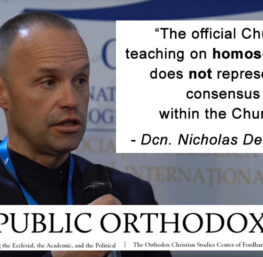TownHall.com Kathleen Parker November 6, 2005
Parents increasingly at war against a culture they find aggressively sexualized just lost another battle. This time against the local school board.
In a recent ruling, a three-judge panel of the 9th Circuit Court of Appeals (that be the Left Coast) determined that parents do not have a fundamental right to control when, where and how their children are taught about sex.
Rather the state — in its far greater wisdom about what’s right and wrong — has ultimate power over your kids.




This is a legal outcome that I would have thought would be celebrated by all those who oppose both judicial activism and the litigious nature of society.
A school district elicited the voluntary participation of grade school students and their parents in a survey dealing with “early trauma.” The consent form noted that students might find some questions disturbing, but did not mention that some of the questions dealt with sexual matters. Some of the parents sued, seeking unspecified monetary damages.
The Court said that “We note at the outset that it is not our role to rule on the wisdom of the School District’s actions. That is a matter that must be decided in other fora. The question before us is simply whether the parents have a constitutional right to exclusive control over the introduction and flow of sexual information to their children. It is clear, and the parents agree, that no court has ever held that parents have a specific fundamental right ‘to control the upbringing of their children by introducing them to matters of and relating to sex in accordance with their personal and religious values and beliefs.’ In fact, no such specific right can be found in the deep roots of the nation’s history and tradition or implied in the concept of ordered liberty.”
Fields v. Palmdale School District, 03-56499
So we have a case in which parents are seeking money to compensate them for their perceived damages. In other kinds of cases — medical malpractice, for example — this might have been denounced as a sign of greed. In this case the article doesn’t even bother to mention that this was a suit for money.
The courts are often criticized for finding or inventing rights where there are none, and for deciding cases on the basis of feeling rather than on legal principle. In this case, the author of the article apparently feels that the Court should have been outraged over the survey questions to that point that the actual legal issues would have been ignored.
The Court refuses to do that. First, they refuse to be involved in the issue of the “wisdom of the School District’s actions,” noting that another forum would be the appropriate venue for that issue. Second, the Court fails to find a “constitutional right” to parents having exclusive control over the flow of sexual information to their children. I’m not a lawyer, but I certainly have never heard of any such right.
We have a court decision in which the plaintiff’s monetary claims are rejected on the basis of a narrow court ruling in which the court refused to recognize a “right” that has no basis in law or legal tradition. So why aren’t conservatives celebrating? Isn’t this exactly the kind of decision they want?
Are you a parent?
Note 1 Jim may or may not be a parent, but he is definitely acting the troll
I have a huge project to finish between now the 16th of November. After that I will post some comments on this case. Jim’s analysis is confused and inaccurate and does not reflect any understanding of American constitutional law.
For those who don’t know me, I have practiced law for more than 20 years. I have detailed my professional credentials to Fr. Jacobse in a private e-mail. I am currently licensed in two states (one license is active, the other license is inactive right now). I have represented many clients in both state and federal courts and I have appeared at both the trial and appellate level. I am primarily a litigator, a trial attorney.
I generally avoid commently directly on theological matters but this post concerns something I have made a living doing for a couple of decades and I am qualified to address it.
As I said, let me get my project finished and I will submit a few comments.
Public schools have the responsibility of equipping their students with knowledge, even when some of the facts involved are neither comfortable nor comforting to the children or their parents. This can be actually be done without imposing a set of values on the children if done sensitively and if the school has some common sense as to the degree of reality appropriate for the age level. The schools should strive to present material in an as objective fashion as possible. In this case, simply relating the mechanics of sexuality at an appropriate age can be done without imparting one’s values about the behavior involved.
In any rate, I’m not sure that there’s a way of making schools free of controversial subject matter: even if you removed all 20th century literature from the English classes, people are going to then gripe about the science courses if they feel it refutes their belief in a 6,000 year old Earth or, depending on the family, if a history course portrays Catholics in a positive light (seriously).
So in light of this, who is supposed to decide on what facts are presented in any given class? Popular vote among the parents? Draw straws? I guess I’m saying that if you really want full control over what your children read, hear and see, you’d best homeschool them.
James, are you a parent?
Note 5: I don’t have children, but I was one once! From a kid’s perspective, I don’t think that I really wanted to discuss these sort of things with my parents, despite having a close relationship with both. But that’s just me.
I recall seeing a graphic STD film in the 6th grade (at a Catholic school, mind you). I recall the girls shrieking in horror and the boys laughing, but I’m pretty sure we all came out of that not really feeling very encouraged to do anything. They weren’t showing it as an implicit “threat” but simply to say, “This can happen”. Were I a parent, I think I’d be more than happy to let the school discuss these sort of things with the necessary vivid detail that they do, perhaps because I’m just squeamish about such discussions.
If you’re talking about a school imparting values surrounding sexuality, then yes, parents need to have a say and be informed. If you’re talking about them simply discussing facts, then I’m not so sure, especially when there are many folks like me may be a little hesitant about bringing the subject up to their kids. Ignorance is not necessarily bliss.
Missourian said
For those who don’t know me, I have practiced law for more than 20 years. I have detailed my professional credentials to Fr. Jacobse in a private e-mail. I am currently licensed in two states (one license is active, the other license is inactive right now). I have represented many clients in both state and federal courts and I have appeared at both the trial and appellate level. I am primarily a litigator, a trial attorney.
But are you a parent? That seems to be the main question.
Juli (a parent)
Juli writes: “But are you a parent? That seems to be the main question.”
Yes, it does, but I’m not sure why. Being a concerned parent doesn’t mean that one’s concerns should be played out in the legal system.
Frankly the whole thing seems a little silly to me. We’re talking about a single survey created by a graduate student volunteer, the content of which should have been discussed with the parents in more detail but wasn’t. It’s not like they were taking the kids to porno movies or introducing them to hookers. This is the kind of thing that you complain to the school board about, and if you don’t like the answers you vote in a new school boad next election.
Missourian’s gazillion years of legal experience, which we hear so much about from time to time, nothwithstanding, the courts were not the appropriate venue for this complaint.
Its a legal issue
It is my plan to comment on the legal issues presented by the case. Whether or not I am a parent is not relevant. The debate is about constitutional principles.
JamesK, RE#6. There is no such thing as a factual discussion devoid of values. Facts only take on meaning and signficance within a coherent set of ideas.
My point in asking if the defenders of the court’s decision were parents is that a parent, like Michael above, would understand the implicit danger of a court determining what kind of sex education their children must be taught. My hunch is that those who defend the decision don’t seeem to see the danger because they don’t have children.